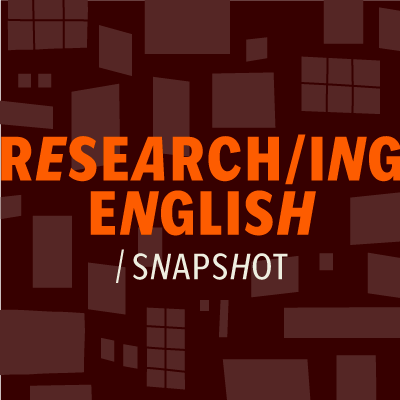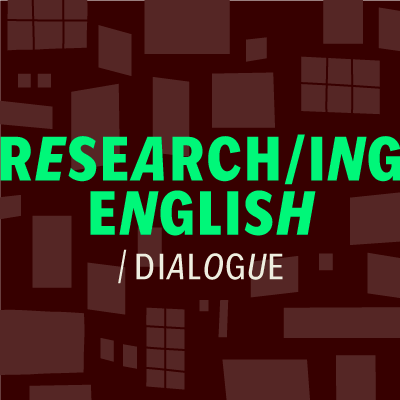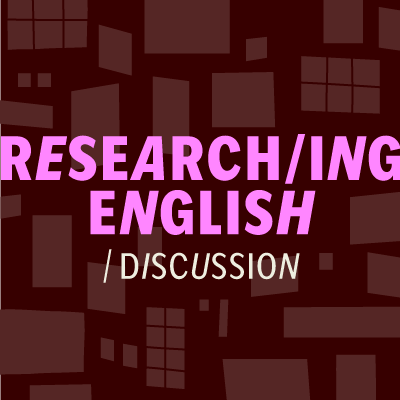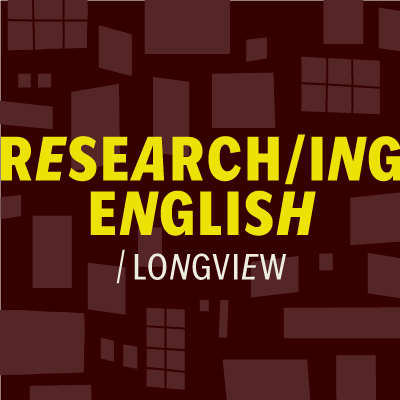
Search VATE
e.g. Tales of Two Cities, VCE literature guide, membership...
Research
VATE Research/ing English
We are pleased to announce a series of new VATE initiatives that aim to focus on research. VATE’s new research initiatives link explicitly to an ongoing focus on effective professional learning and renewal and will assist faculties to make evidence-informed decisions related to teaching and student learning in English. VATE’s focus on research also aims to support members to actively engage in inquiry and dialogue related to issues of contention and contextual concern. The initiative aims to empower English teachers with new knowledge, to enhance advocacy and agency, and to create opportunities for English teachers to engage in, share and value school-based practitioner inquiries.
Through these thought-provoking and useful initiatives, we intend to support English teachers to stay abreast of current questions and research perspectives that directly influence their work in challenging and busy times. We hope that the initiatives will stimulate conversations in networks, help to identify disinformation, promote knowledge construction and innovation, and, importantly, enable teachers to justify the decisions they make as they enhance student learning in diverse communities and contexts.
Amanda McGraw, VATE Council Research Officer
VATE members can access these resources here.
Research SnapshotThe Research Snapshot is a curated email of free-to-access research that has been complied by an English researcher and academic. Each Snapshot will provide links to recommended reading about a specific topic and will be supported by brief annotations and discussion questions for use in your faculties, PLCs or professional reading groups. VATE will disseminate three Research Snapshots to members each year. |
||
Dialogue SeminarsThe Dialogue Seminars are designed to encourage discussion, collaborative problem solving and active contribution from members who wish to interrogate some of the ideas presented in the Research Snapshot further. Each Dialogue Seminar will take place in-person and online, where invited panellists will respond to a provocation stemming from the Research Snapshot, and members will be invited to participate in discussion, examination of specific case studies, and applications for the classroom. There will be three Dialogue Seminars each year. NB: The Dialogue Seminars will replace the VATE Leadership Conference and aim to involve those who are current and aspiring English leaders in schools. |
||
Discussion PapersDiscussion Papers will provide members with access to contemporary and enduring thinking and research written by experts in the field of secondary English education. These Papers will be based on VATE Council’s priorities and members’ significant interests and needs, engaging with the challenges in the profession in a compelling way, supporting and provoking discussion between members in schools and the profession more generally. Two Discussion Papers will be published annually, each elaborating on the focus of the Research Snapshot and Dialogue Seminar. |
||
Longview EssayVATE will commission one long-form essay each year where an expert in the field will present a detailed examination of an issue in subject English. In response to the challenges, issues and ideological matters concerning English teaching and learning, the Longview Essay will provide members with academic commentary that can assist with the pedagogical and philosophical demands of teaching English in Victoria. |
Research
Between 2018-2022, VATE offered an annual grant of up to $8,000 (GST inclusive) to enable researchers and teachers to work together to conduct collaborative inquiries into significant contemporary issues related to teaching and learning in secondary school English. The VATE Research Grant was available to single researchers or to a collaborative team of researchers with a view to enhancing the quality of English teaching through research and professional learning. Funding was used for research assistance, travel and accommodation, CRT coverage, transcription services and to facilitate meetings.
The research incorporated the following items:
- Member survey/s and member engagement
- Literature review with relevant research shared with the VATE community through its regular eBulletins
- An interim report on findings; and a final discussion paper that is both theoretical and practical for dissemination to the VATE and AATE communities
- A presentation at the VATE State Conference
- A paper ready to be considered for publication in English in Australia or another peer reviewed journal
- Additional professional learning opportunities and publications will be discussed post-publication of the final discussion paper.
VATE Research Grant recipients
Sustaining the English teaching profession/al in uncertain times (2022)
Sustaining the secondary English teaching profession/al in uncertain times is a multi-institutional research project undertaken by Fleur Diamond (Monash University), Scott Bulfin (Monash University), Jo O'Mara (Deakin University), Graham Parr (Monash University) and Amanda McGraw (Federation University). The project aims to generate valuable data about the current conditions of secondary English teachers’ work in Victoria and how English teachers sustain their practice and professionalism in the face of significant challenges and uncertainties (including COVID-19). The project aims to inform and support VATE’s efforts to develop the knowledges, identities, and professionalism of its members in uncertain times, while also contributing to state and national debates about the sustainability of the English teaching profession.
An interim report into the findings of this research is available for download here.
Access the final report in the project edition of Idiom (Vol 60, No. 1) here.
Teaching writing today: A collaborative study (2018)
This research focused on the teaching of writing and sought to understand how English teachers are designing curriculum for the teaching of writing. Researchers involved with this project included Lucinda McKnight, Deakin University; Helen Billett, Woodleigh School; Mandy Goff, Tallangatta Secondary College; Andrea Hayes, Brighton Grammar; Tim Mannix, Brentwood Secondary College; Julian Sefton-Green, Deakin University (Project Mentor). Read the study here.
Video games in the English classroom (2018)
Researchers: Lead teacher, Nicole Jasinowicz, Wodonga Senior Secondary College, and Alex Bacalja, University of Melbourne. You can view Alex's IFTE/AATE (2020) presentation 'Critical digital game literacies in the English classroom' here and his VATE State Conference (2019) presentation 'Selecting, curriculum planning and teaching games as text' here. Alex's research can be found in Digital games and language learning: Theory, Development and Implementation (pp. 113-116) and Critical Digital Literacies: Boundary-Crossing Practices (pp. 185-204).
Text Selection in the Senior English Curriculum (2018)
This project with the Melbourne Graduate School of Education was funded by VATE and investigated the past ten years of VCE English textlists (2010-2019). The project quantified and analysed the frequency of different categories of texts and analysed the implications of these trends on student egagement and student life-worlds. The report, co-authored by Alex Bacalja and Lauren Bliss, can be found here.


